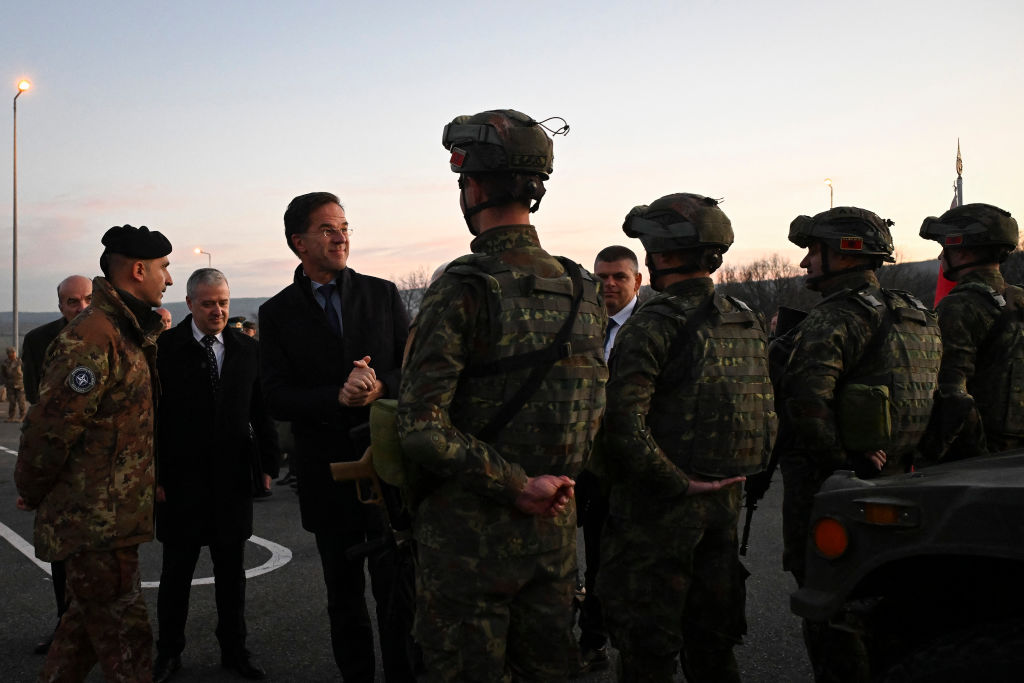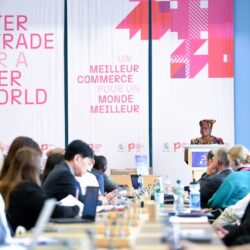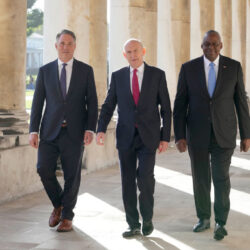
The critical role of Central and Eastern Europe countries (sometimes called CEEC) in global geopolitics was defined by British politician and academic Halford Mackinder, who considered the domination of this region the key to world hegemony. Presently three main major powers interested in geopolitics and hegemony coexist in the region: Germany, Russia (both since the 19th century) and the United States (since the 1990s). Since the United States seeks unity and stability in the region, a sustained dialog among the Big Three should be a priority of U.S. foreign policy.
The Big Three
Germany pursues its strategic goals in Central and Eastern Europe mainly through the European Union. The former socialist Central and Eastern European countries (even EU members) still diverge significantly in political and economic policies, demonstrating a tendency toward nationalism and protectionism. The contradictions between the CEEC and the EU were supposed to lead to a synthesis and a new Europe. In reality, these countries have not embraced the values and policies of Western Europe regarding migration, the LGBTQ agenda, and the Ukrainian crisis. They remain conservative and traditional and often break from the EU. In the context of the political and socioeconomic crisis, they are deviating from the EU agenda. There is a rise of authoritarian “strongman” leaders who offer prompt solutions to current problems. This division between Western EU nations and members from Central and Eastern Europe, like Hungary and Poland, makes it very difficult for Germany to dominate this region.
For the United States, CEEC (primarily NATO members) are the strategic outpost on the continent. Lately, the United States hasn’t made these countries a foreign policy priority. Yet a crisis in the CEEC would have global implications because of their proximity to Ukraine. The United States is interested in maintaining transatlantic unity and preventing Central and Eastern European Countries from leaving the EU. Attempts to pressure these countries will only increase resistance. Even regarding the Ukrainian crisis, there is no unity among NATO members and non-members in the region.
Russia’s influence in the CEEC comes from cultural proximity (Slavic brotherhood) and traditional economic ties. Disagreements are noted in regional security issues. Since World War II, security issues have remained the most relevant for Russia. The expansion of NATO threatens its national security. In 2021, 45% of the CEEC population believed that NATO was provoking Russia, while 47% considered criticism of Russia by the West to be unfounded.
Net Assessment
If the Big Three were more accommodating of mutual interests and coordinated strategic decisions, Central and Eastern Europe could stabilize. It seems crucial to avoid broadcasting and/or encouraging hostile rhetoric. Every Central and Eastern European country’s population includes many supporters of the other states, so attacks on any one of these states are likely to increase internal tension and political disunity. Fundamental changes in one of these countries such as the “velvet revolutions,” or the expansion of NATO and/or the EU – can transform the region, since the states are closely connected historically, culturally, ethnically, religiously, geographically, and linguistically.
The Central and Eastern European countries have been at a crossroads of religions and cultures for many centuries. Now they can become a bridge between East and West. However, for this they need a geopolitical balance and peaceful, productive coexistence of the Big Three. The United States and Germany (along with the rest of the EU) are closely connected by a transatlantic partnership, so the question of establishing a new model of constructive cooperation with Russia remains open. New security guarantees covering Eastern Europe can become the basis for beneficial relations between the parties and contribute to regional stability and prosperity.
NATO Secretary General Mark Rutte (4L) speaks with Albanian soldiers of the NATO multinational battle group during his visit at the Novo Selo military ground near Mokren, northwestern Bulgaria, on Dec. 19, 2024. (Photo by Nikolay DOYCHINOV / AFP) (Photo by NIKOLAY DOYCHINOV/AFP via Getty Images)





